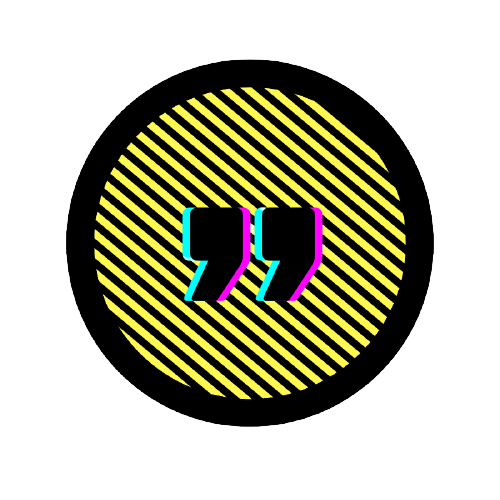The new Dutch law unilaterally redefines what we understand as a “tobacco product” and claims to be the key to a smoke-free future. The underlying objective appears to be the ability to preemptively regulate the industry preemptively, preventing the introduction of potentially safer alternatives that manufacturers might present as a way to bypass regulations. However, authorities seem to have fallen into the old trap of excessive prohibitions, often causing more harm than good.
In the Netherlands, a country that prides itself on being a leader in the fight against tobacco, the 2023 law redefining “tobacco products” seems more like a headline-grabbing move than a sensible public health strategy.
Driven by a desire to wage war on nicotine, the government has decided that any nicotine-containing substance, even if it doesn’t come from tobacco, will be classified as a “tobacco product.”
This new classification not only targets cigarettes but also shuts down the hopes of those seeking less harmful alternatives in a smoke-free world.
A Flawed Approach
The law contradicts logic, caught up in semantics and a black-and-white narrative. While claiming to protect future generations, the government has ignored decades of research on harm reduction, eliminating any competition to the “approved” alternatives offered by the pharmaceutical industry—nicotine gum and patches.
Once again, public health policies have defaulted to prohibition rather than education or dialogue.
After all, what’s easier (and more populist) than banning everything?
A Battle of Good vs. Evil
The official narrative paints the fight against nicotine as a moral crusade—a battle between good (a smoke-free future) and evil (the demonized addiction to nicotine).
However, what’s less publicly acknowledged is that this law also restricts access to harm-reduction products, those that could provide a less toxic path for smokers who cannot or will not quit nicotine cold turkey.
Hans Molenaar, an expert in the field, bluntly states: “This is the Netherlands’ way of effectively banning nicotine pouches.” These small, discreet, tobacco-free pouches have gained popularity among individuals seeking a less harmful alternative to cigarettes.
But the new law’s broad scope might even extend to banning food products containing small amounts of nicotine—no detail is too small in the fight to eradicate this “evil.”
The law clearly prohibits the sale of nicotine pouches due to their popularity among young people and their ability to cause addiction discreetly, without smoke.
Only nicotine products approved for smoking cessation, like gums and patches, are allowed for sale.
What’s Really at Stake?
The main target of this law is nicotine pouches, which, according to the National Institute for Public Health and the Environment (RIVM), are as addictive as tobacco.
In 2021, the RIVM concluded that while these pouches do not contain tobacco, they are harmful due to their potential to cause addiction.
However, an important fact is left out of the official narrative: these pouches, being tobacco-free, avoid many of the toxins found in traditional cigarettes.
Instead of sensibly regulating these alternatives, the Dutch government has chosen to ban them entirely.
Why offer smokers safer options when you can condemn any alternative that doesn’t fit into the utopian plan of a nicotine-free future?
Fear of Competition or Fear of the New? The rise of tobacco-free products, like nicotine pouches and e-cigarettes, reflects the evolution of consumer demand for less harmful alternatives.
Yet, instead of adapting to this new reality with intelligent regulation, the Netherlands has blocked any progress.
Although less harmful, nicotine pouches now face the same restrictions as tobacco: advertising bans, sales limitations, and more.
Winners and Losers
Though the law is new, its impact is already being felt. A 2022 study revealed that three-quarters of Dutch youth were aware of nicotine pouches, with a quarter having tried them.
Marketed as discreet and less harmful than cigarettes, these pouches have found a niche, particularly among teens who smoke.
Inspired by the ban on snus, a smokeless tobacco product allowed only in Sweden, the Dutch government sees nicotine pouches as similarly problematic. Both allow for discreet use and are difficult to detect in smoke-free areas.
However, by banning these alternatives, the government denies smokers the chance to switch to less toxic products, ignoring the potential life-saving impact.
Protecting or Punishing?
In its near-religious mission to eradicate nicotine, the Dutch government has chosen to ban it first and ask questions later.
Anything containing nicotine, regardless of its risk level, is lumped into the same category.
By closing the door on safer alternatives, the government contradicts the harm reduction principle, denying smokers the opportunity to transition to safer products that could improve their quality of life.
Do they really believe that those addicted to tobacco will quit just because a less harmful alternative is banned?
It’s far more likely that these individuals will continue smoking, clinging to the most dangerous option for their health: traditional cigarettes.
The Netherlands has spoken: in their vision of a smoke-free future, there is no place for nicotine in any form.
However, time will tell whether this prohibitionist approach will save lives—or, ironically, condemn thousands of smokers to keep using the most dangerous product of all: tobacco.
For further details: https://www.eerstekamer.nl/behandeling/20230831/memorie_van_toelichting/info
What is the law about?
The law’s purpose is to reduce the consumption of tobacco and nicotine products and to achieve a “smoke-free generation” by 2040. According to authorities, this implies that young people will not consume tobacco or nicotine products, and the number of adult smokers will decrease to less than 5%.
Motivation and Context
In response to the National Prevention Agreement (Preventieakkoord), the law seeks to implement stricter regulations on nicotine products that do not contain tobacco, such as nicotine pouches, to prevent their use as alternatives to traditional tobacco. These products contain the addictive substance nicotine, but up until now, they were not regulated under the same laws as tobacco products.
Nicotine Products Without Tobacco (NZT)
The law subjects nicotine products without tobacco (NZT) to similar regulations for tobacco products, such as sales restrictions, advertising bans, and age limits. Nicotine pouches, in particular, are identified as highly popular and growing in use among young people. The law establishes a total ban on their sale in the Netherlands.
Public Health
Nicotine, even without tobacco, is considered a highly addictive and harmful substance (except for pharmaceutical products). Risks have been identified, including the potential for dependence, as well as cardiovascular and respiratory problems. Nicotine products without tobacco can also be dangerous for children due to their susceptibility to nicotine toxicity.
Ban on Oral Use Products
The sale of nicotine pouches is prohibited due to their popularity among young people and their capacity to discreetly cause addiction without producing smoke. The sale of nicotine products is only permitted if they are approved as medical treatments for smoking cessation, such as nicotine gum or patches.
Nicotine Devices
Refillable devices used to consume nicotine products without tobacco will also be regulated under this law, with advertising bans and sales restrictions similar to those for traditional tobacco products.
Implications for the Industry
The law aims to prevent the tobacco industry from introducing future products to bypass existing tobacco regulations. Therefore, any new nicotine-free product without tobacco will be automatically included under this regulation, ensuring it cannot be sold freely without restrictions.
Protection of Youth
One of the key objectives is to prevent young people from starting to use these products, which the government considers a gateway to nicotine and tobacco addiction. The law includes an advertising ban targeting young people and restrictions on using attractive designs or flavors that could make these products more appealing.
European Regulations
The document also references European regulations on tobacco products and how the Netherlands seeks to align with these standards while applying stricter regulations to nicotine products without tobacco.

